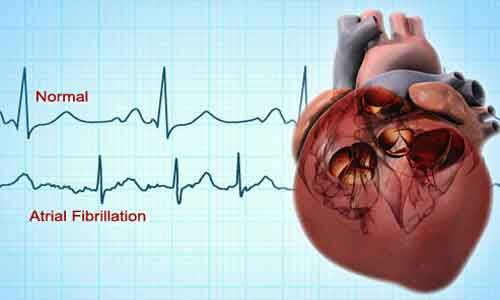- Home
- Medical news & Guidelines
- Anesthesiology
- Cardiology and CTVS
- Critical Care
- Dentistry
- Dermatology
- Diabetes and Endocrinology
- ENT
- Gastroenterology
- Medicine
- Nephrology
- Neurology
- Obstretics-Gynaecology
- Oncology
- Ophthalmology
- Orthopaedics
- Pediatrics-Neonatology
- Psychiatry
- Pulmonology
- Radiology
- Surgery
- Urology
- Laboratory Medicine
- Diet
- Nursing
- Paramedical
- Physiotherapy
- Health news
- Fact Check
- Bone Health Fact Check
- Brain Health Fact Check
- Cancer Related Fact Check
- Child Care Fact Check
- Dental and oral health fact check
- Diabetes and metabolic health fact check
- Diet and Nutrition Fact Check
- Eye and ENT Care Fact Check
- Fitness fact check
- Gut health fact check
- Heart health fact check
- Kidney health fact check
- Medical education fact check
- Men's health fact check
- Respiratory fact check
- Skin and hair care fact check
- Vaccine and Immunization fact check
- Women's health fact check
- AYUSH
- State News
- Andaman and Nicobar Islands
- Andhra Pradesh
- Arunachal Pradesh
- Assam
- Bihar
- Chandigarh
- Chattisgarh
- Dadra and Nagar Haveli
- Daman and Diu
- Delhi
- Goa
- Gujarat
- Haryana
- Himachal Pradesh
- Jammu & Kashmir
- Jharkhand
- Karnataka
- Kerala
- Ladakh
- Lakshadweep
- Madhya Pradesh
- Maharashtra
- Manipur
- Meghalaya
- Mizoram
- Nagaland
- Odisha
- Puducherry
- Punjab
- Rajasthan
- Sikkim
- Tamil Nadu
- Telangana
- Tripura
- Uttar Pradesh
- Uttrakhand
- West Bengal
- Medical Education
- Industry
AF after CABG tied to increased risk of stroke, heart failure: JAHA

Sweden: In patients undergoing bypass surgery, postoperative atrial fibrillation (POAF) is associated with an increased risk of adverse outcomes but not with mortality, suggests a recent study. According to the study, published in the Journal of the American Heart Association (JAHA), postoperative new onset POAF increased the long‐term risk of thromboembolism, ischemic stroke, heart failure hospitalization and recurrent atrial fibrillation.
The authors recommend further research to attempt to reduce the likelihood of POAF in patients undergoing coronary bypass grafting.
In this present large population‐based nationwide study, Anders Jeppsson, Sahlgrenska University Hospital, Gothenburg, Sweden, and colleagues investigated whether POAF after CABG increases long‐term risk of morbidity and/or mortality. In addition, the researchers explored if early initiation of oral anticoagulation after CABG is associated with a reduced thromboembolic risk.
Using data from 4 national registries, the researchers included all patients who underwent coronary artery bypass grafting without preoperative atrial fibrillation in Sweden from 2007 to 2015.
POAF was defined as any new‐onset atrial fibrillation during the first 30 postoperative days. Cox regression models (adjusted for age, sex, comorbidity, and medication) were used to assess long‐term outcome in patients with and without POAF, and potential associations between early‐initiated OAC and outcome.
Key findings of the study include:
- In a cohort of 24 523 patients with coronary artery bypass grafting, POAF occurred in 30.0% patients, and 24.0% of them were prescribed OAC within 30 days after surgery.
- During follow‐up (median 4.5 years, range 0‒9 years), POAF was associated with increased risk of ischemic stroke (adjusted hazard ratio [aHR] 1.18), any thromboembolism (ischemic stroke, transient ischemic attack, or peripheral arterial embolism) (aHR 1.16), heart failure hospitalization (aHR 1.35), and recurrent atrial fibrillation (aHR 4.16, 3.76‒4.60), but not with all‐cause mortality (aHR 1.08).
- Early initiation of OAC was not associated with reduced risk of ischemic stroke or any thromboembolism but with increased risk for major bleeding (aHR 1.40).
"POAF after coronary artery bypass grafting is associated with negative prognostic impact. The role of early OAC therapy remains unclear. Studies aiming at reducing the occurrence of POAF and its consequences are warranted," concluded the authors.
"New‐Onset Atrial Fibrillation After Coronary Artery Bypass Grafting and Long‐Term Outcome: A Population‐Based Nationwide Study From the SWEDEHEART Registry," is published in the Journal of the American Heart Association.
DOI: https://www.ahajournals.org/doi/10.1161/JAHA.120.017966
Dr Kamal Kant Kohli-MBBS, DTCD- a chest specialist with more than 30 years of practice and a flair for writing clinical articles, Dr Kamal Kant Kohli joined Medical Dialogues as a Chief Editor of Medical News. Besides writing articles, as an editor, he proofreads and verifies all the medical content published on Medical Dialogues including those coming from journals, studies,medical conferences,guidelines etc. Email: drkohli@medicaldialogues.in. Contact no. 011-43720751


